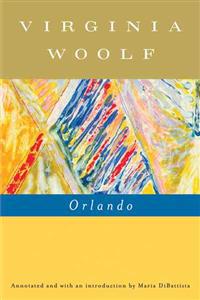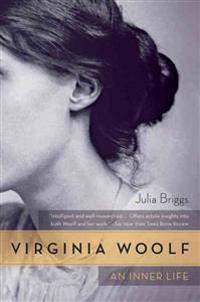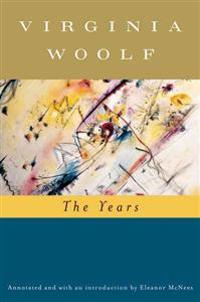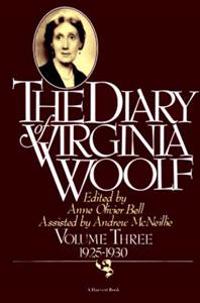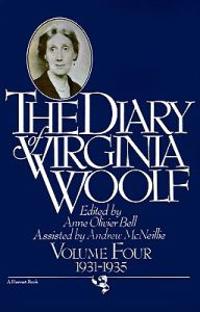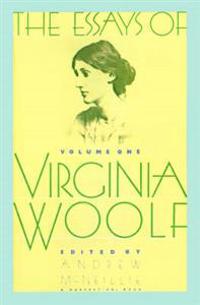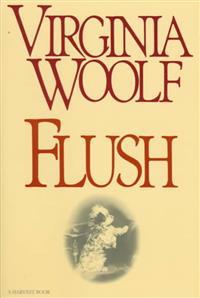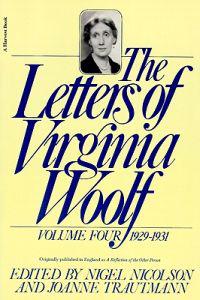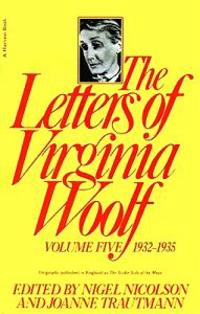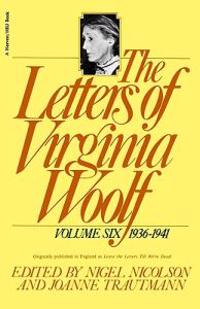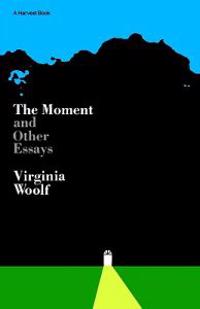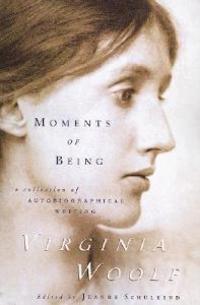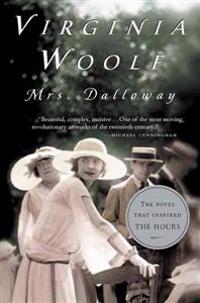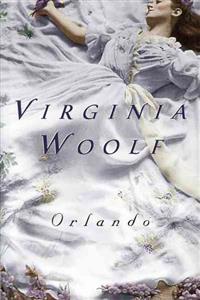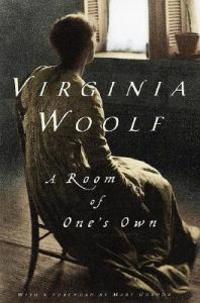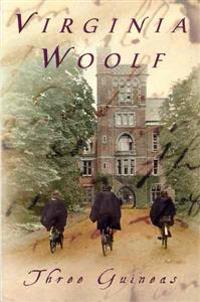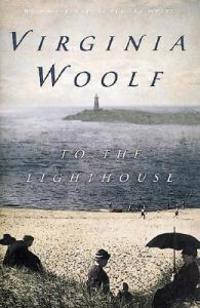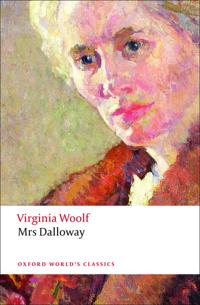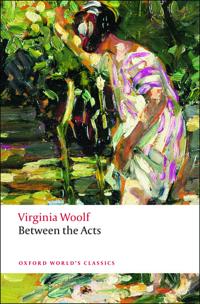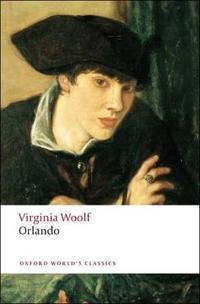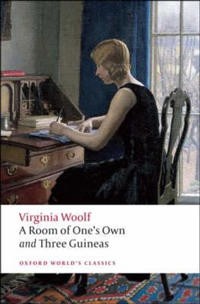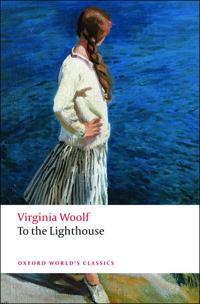Orlando: A Biography (Häftad)
avVirginia Woolf, Mark Hussey, Maria DiBattista
ISBN: 9780156031516 - UTGIVEN: 200607Begun as a "joke," Orlando is Virginia Woolf's fantastical biography of a poet who first appears as a sixteen-year-old boy at the court of Elizabeth I, and is left at the novel's end a married woman in the year 1928. Part love letter to Vita Sackville-West, part exploration of the art of biography, [...]
The Years (Häftad)
avVirginia Woolf, Mark Hussey, Eleanor McNees
ISBN: 9780156034852 - UTGIVEN: 200806Diary of Virginia Woolf: 1925-1930 (Häftad)
avAnne Olivier Bell, Anne Olivier Bell
ISBN: 9780156260381 - UTGIVEN: 198109An account of Woolf's life during the period in which To the Lighthouse and The Waves were written. "Her steel-trap mind and elegant prose...make this a most valuable and pleasurable book" (Publishers Weekly). "Volume three is as witty and intelligent as its predecessors" (Atlantic Monthly). Edited [...]
The Diary of Virginia Woolf: 1931-1935 (Häftad)
avAnne O. Bell, Andrew McNeillie
ISBN: 9780156260398 - UTGIVEN: 198311The penultimate volume of Woolf's diaries details the mature period of The Years and moments of personal sadness brought by the deaths of Lytton Strachey, Dora Carrington, and Roger Fry. "A book of extraordinary vitality, wit, and beauty" (New York Times Book Review). Edited by Anne Olivier Bell, as[...]
Essays of Virginia Woolf: 1904-1912 (Häftad)
avAndrew McNeillie
ISBN: 9780156290548 - UTGIVEN: 198911Nonfiction pieces dating from 1904, when she was twenty-three, to 1912, the year of her marriage to Leonard Woolf. "These are polished works of literary journalism-shrewd, deft, inquisitive, graceful, and often sparkling" (Library Journal). Edited and with an Introduction by Andrew McNeillie; Index.[...]
The Letters of Virginia Woolf: Volume IV: 1929-1931 (häftad)
ISBN: 9780156508841 - UTGIVEN: 1981-05These years were dominated by one woman and one book. The woman was Ethel Smyth; the book was The Waves. This volume's "unerringly human and confessional tone makes Woolf, at last, a real person" (San Francisco Chronicle). Edited by Nigel Nicolson and Joanne Trautmann; Introduction by Nigel Nicolson[...]
Letters of Virginia Woolf 1932-1935 (häftad)
ISBN: 9780156508865 - UTGIVEN: 1982-05The penultimate volume of Woolf's letters, when the author was between the ages of 50 and 53, covers the composition of the Years and the death of Lytton Strachey and Roger Fry. "Her wit flashes, often unexpectedly, in letters of almost every kind" (New Yorker). Edited by Nigel Nicolson and Joanne T[...]
The Letters of Virginia Woolf: Vol. 6 (1936-1941) (häftad)
ISBN: 9780156508872 - UTGIVEN: 1982-09The unabridged texts of virtually all of the English novelist's extant correspondence, recording her personality, activities, relationships, spells of madness, and growth as a writer from the age of six to shortly before her death[...]
Moment and Other Essays (Häftad)
avVirginia Woolf
ISBN: 9780156619004 - UTGIVEN: 197410A selection of twenty-nine essays. " Woolf's] essays...are lighter and easier than her fiction, and they exude information and pleasure.... Everything she writes about novelists, like everything she writes about women, is fascinating.... Her well-stocked, academic, masculine mind is the ideal flint [...]
Moments of Being: Second Edition (Häftad)
avVirginia Woolf, Jeanne Schulkind
ISBN: 9780156619189 - UTGIVEN: 198508Published years after her death, "Moments of Being" is Virginia Woolf's only autobiographical writing, considered by many to be her most important book.
In "Reminiscences," the first of five pieces included in "Moments of Being," Woolf focuses on the death of her mother, "the greatest disaster th[...]Mrs. Dalloway (Häftad)
avVirginia Woolf, Maureen Howard
ISBN: 9780156628709 - UTGIVEN: 1990-09Direct and vivid in her account of Clarissa Dalloway's preparations for a party, Virginia Woolf explores the hidden springs of thought and action in one day of a woman's life. In Mrs. Dalloway, the novel on which the movie "The Hours" was based, Virginia Woolf details Clarissa Dalloway's preparation[...]
A Room of One's Own (Häftad)
avVirginia Woolf, Mary Gordon
ISBN: 9780156787338 - UTGIVEN: 198912Virginia Woolf's landmark inquiry into women's role in society In "A Room of One's Own," Virginia Woolf imagines that Shakespeare had a sister--a sister equal to Shakespeare in talent, and equal in genius, but whose legacy is radically different. This imaginary woman never writes a word and dies by [...]
Three Guineas (Häftad)
avVirginia Woolf
ISBN: 9780156901772 - UTGIVEN: 196305The author received three separate requests for a gift of one guinea-one for a women s college building fund, one for a society promoting the employment of professional women, and one to help prevent war and protect culture, and intellectual liberty. This book is a threefold answer to these requests[...]
To the Lighthouse (Häftad)
avVirginia Woolf, Eudora Welty
ISBN: 9780156907392 - UTGIVEN: 198912An English family's complex lives are followed and picked up again after a ten year hiatus in order to explore the effects of time[...]
Virginia Woolf: A Biography Pa (Pocket)
avBriggs, Julia, Bell, Chris, Bell, Quentin
ISBN: 9780156935807@lt;DIV@gt;The first full-scale biography of the eminent British writer, written by her nephew. Index; photographs.@lt;br@gt;@lt;/div@gt;[...]
Virginia Woolf Reader (häftad)
ISBN: 9780156935906 - UTGIVEN: 1984-10Presents five short stories, essays, correspondence, and selections from four novels by the prominent British author[...]
Katherine Mansfield and Virginia Woolf: A Public of Two (Inbunden)
avAngela Smith
ISBN: 9780198183983 - UTGIVEN: 1999-03-25Mrs Dalloway (Häftad)
avVirginia Woolf
ISBN: 9780199536009 - UTGIVEN: 200804'Fear no more the heat of the sun.' Mrs Dalloway, Virginia Woolf's fourth novel, offers the reader an impression of a single June day in London in 1923. Clarissa Dalloway, the wife of a Conservative member of parliament, is preparing to give an evening party, while the shell-shocked Septimus Warren[...]
Between the Acts (Häftad)
avVirginia Woolf
ISBN: 9780199536573 - UTGIVEN: 200806Between the Acts is Virginia Woolf's last novel, and in her own opinion it was 'more quintessential' than any of her others. Set in the summer of 1939 on the day of the annual village pageant at Pointz Hall, the book weaves together the musings of several disparate characters and their reactions to [...]
Orlando: a Biography (Häftad)
avVirginia Woolf
ISBN: 9780199536597 - UTGIVEN: 200806Virginia Woolf's exuberant 'biography' tells the story of the cross-dressing, sex-changing Orlando who begins life as a young noble in the sixteenth century and moves through numerous historical and geographical worlds to finish as a modern woman writer in the 1920s. The book is in part a happy trib[...]
A Room of One's Own, and Three Guineas (Häftad)
avVirginia Woolf
ISBN: 9780199536603 - UTGIVEN: 200806In A Room of One's Own and Three Guineas, Virginia Woolf considers with energy and wit the implications of the historical exclusion of women from education and from economic independence. In A Room of One's Own (1929), she examines the work of past women writers, and looks ahead to a time when women[...]
To the Lighthouse (Häftad)
avVirginia Woolf
ISBN: 9780199536610 - UTGIVEN: 200806'I am making up "To the Lighthouse" - the sea is to be heard all through it' Inspired by the lost bliss of her childhood summers in Cornwall, Virginia Woolf produced one of the masterworks of English literature in To the Lighthouse. It concerns the Ramsay family and their summer guests on the Isle o[...]

